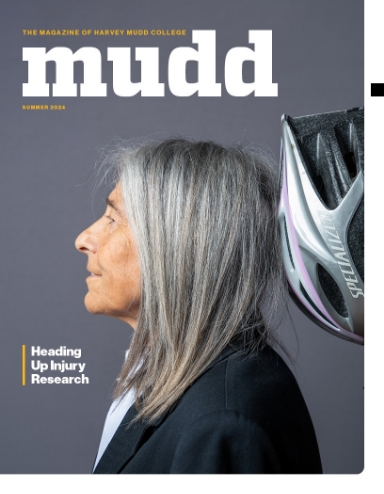Harvey Mudd Professors to Study “Flipped” Classroom Model
September 16, 2013Flipped classrooms are being implemented nationwide and the idea has caught on much like the concept of massive open online courses (MOOCs). But does flipped classroom instruction increase learning and retention? Four Harvey Mudd College professors have been awarded a three-year, $199,544 National Science Foundation grant to find out.
In a flipped, or inverted, classroom, lectures are delivered outside of class—via online videos or screencasts—and viewed by students during their free time. Classroom time is then used for instructor-mediated, hands-on learning.
“The flipped format has the potential to transform STEM education by increasing student time spent on what research has proven to be the most effective teaching techniques without sacrificing material coverage or educational scaffolding,” said engineering Professor Nancy Lape. “Many educators are beginning to invert their classrooms, but there is limited data on learning gains from controlled studies currently available.”
Lape, chemistry Professor Karl Haushalter and mathematics Professors Rachel Levy and Darryl Yong test-drove the flipped model as a pilot program during the 2012-2013 academic year. Now, they plan to extend the program for three more years to scientifically study and quantify their results.
“We propose to rigorously examine the impact of four instructors inverting three STEM courses—in chemistry, engineering and mathematics—by measuring student learning gains,” said Levy. “In flipped classes, increased student learning and retention may occur because of the additional time students have with instructors actively working on meaningful tasks in class. On the other hand, it is possible that if we control enough variables, we will find that the learning gains are not significantly different from interactive lecture-style courses.”
A primary goal of the study is to try to control as many variables as possible. For example, each professor will teach both a control and an experimental section. The material for students in each group will be as similar as possible, but they will experience different modes of delivery and engagement. Evaluation of the project will include learning gains, retention and transfer to downstream courses. The project will also involve a conference and communication between professors from other institutions who are investigating flipped classroom approaches.
The study will have implications for institutions seeking to push more instruction online, because such courses limit instructor-mediated learning. By involving chemistry, engineering and mathematics classes, the study results will be applicable across STEM fields and institutions.
